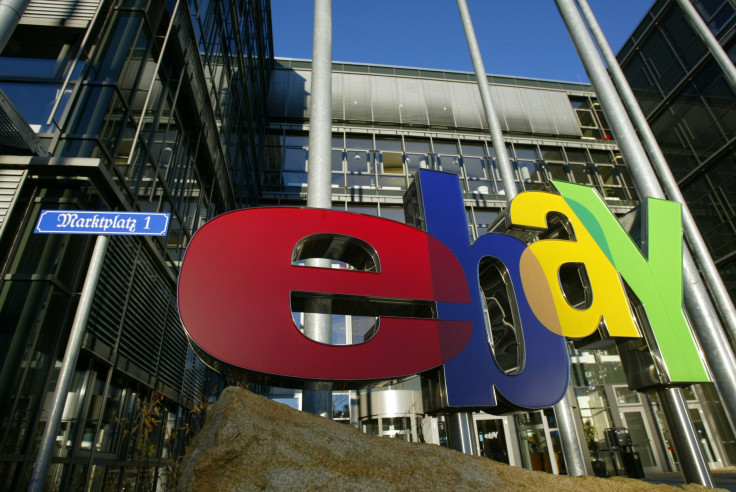Chipotle, eBay, Uber, Airbnb Could Be Left In The Dust By Blockchain?

This article originally appeared in the Motley Fool.
Blockchain, the technology that powers cryptocurrencies like Bitcoin, is one of the tech industry's favorite buzzwords. Tiny companies, including beverage and medical device makers, added "blockchain" to their company names to attract naive investors -- much to the chagrin of the SEC.
Larger companies launched headline-grabbing blockchain experiments, like the adoption of virtual pets, which mattered little to their core businesses. But if we tune out all of that noise, we'll notice that blockchain represents an important technological shift.
What Is A Blockchain?
A blockchain is a decentralized ledger of data which is spread out across various network locations (called "nodes") instead of a central server. This data is secured in encrypted "blocks," which are accessed through a peer-to-peer (P2P) network.
Cryptocurrency transactions are recorded across this P2P network, which allows users to pay each other without going through banks. The creator of a cryptocurrency relies on miners, who use powerful computers to tally and verify the transactions on the blockchain network. Miners are then paid in cryptocurrencies for their services.
But if we look beyond cryptocurrencies, we'll see that blockchain technology can be applied to other industries which would benefit from a decentralized and encrypted P2P network. Companies that are slow to respond -- like Chipotle (NYSE:CMG), eBay (NASDAQ:EBAY), Uber, and Airbnb -- could be left in the dust by that shift.
Solving Chipotle's Food Safety Issues
Chipotle has struggled with food safety issues over the past decade, with outbreaks of hepatitis A, norovirus, campylobacteriosis, E. coli, and salmonella sending diners to the hospital.
Chipotle's critics repeatedly stated that its insistence on only serving "naturally raised" meat and "locally sourced" non-GMO ingredients makes it hard to properly track food safety problems across its fragmented supply chain.
If Chipotle starts using a blockchain network to track its food supply, it could improve its safety record. Last year, Walmart food safety chief Frank Yiannas demonstrated that by using IBM's blockchain platform, the retailer could track the condition and origin of any food product within 2.2 seconds -- a process that would have taken almost a week with previous methods.
If restaurants follow Walmart's lead, they could experience far fewer food safety issues than Chipotle. If Chipotle doesn't apply blockchain technology to its supply chain, it could experience more food safety disasters.
Decentralizing eBay
As a customer-to-customer (C2C) e-commerce platform, eBay generates revenue by acting as a middleman between the merchant and the customer. However, several new start-ups -- including OB1, Listia, and BitBoost -- are creating decentralized blockchain-powered C2C marketplaces to cut big players like eBay out of the loop.
OB1's OpenBazaar is a decentralized marketplace that lets customers pay in Bitcoin. Listia's Ink Protocol uses its own XNK cryptocurrencies for payments, while BitBoost's The Block uses ethereum.
These marketplaces all offer high privacy and security levels, no censorship, and low fees. Speaking to Coindesk, Listia CEO Gee Huang stated that his company's goal was to "decentralize peer-to-peer marketplaces, taking the power away from the companies that run them and giving it back to the buyers and sellers."
It's unlikely that these niche marketplaces will wipe out eBay, but the rise of smaller, decentralized P2P marketplaces could certainly hurt it over the long term. eBay is reportedly mulling the integration of Bitcoin payments into its platform, but it's doubtful it will decentralize its entire platform anytime soon.
Disrupting Uber And Airbnb
Uber disrupted the taxi industry by letting anyone become a paid driver, while Airbnb did the same to the hotel industry by letting anyone rent out a property. Like eBay, both companies generate revenue by acting as the middlemen for these transactions. However, their status as growing companies also leaves them vulnerable to government regulations.
Meanwhile, a blockchain-powered ride-hailing system could cut out the middleman and let drivers directly connect to passengers, while a blockchain-powered rental platform could do the same for landlords and tenants. Blockchain's high privacy and security levels could also shield these platforms from government regulators.
These start-ups are already appearing. Arcade City calls itself a "decentralized, blockchain-based Uber killer," while Rentberry and Stayawhile are taking on Airbnb with their blockchain-based rental platforms. Therefore, it could only be a matter of time before the disruptors become the disrupted.

Leo Sun has no position in any of the stocks mentioned. The Motley Fool owns shares of and recommends Chipotle Mexican Grill and eBay. The Motley Fool has a disclosure policy.
© Copyright IBTimes 2024. All rights reserved.





















